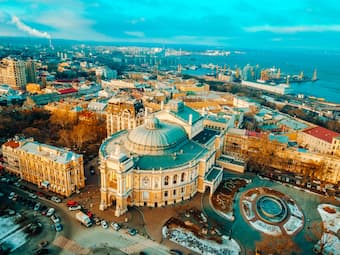
Odessa Opera House
The Ukrainian lands have given rise to some of the most exceptionally gifted artists on the planet. Steeped in musical traditions established well over 1,000 year ago, Ukrainian composers and performers have significantly contributed to the world of classical music. In previous blogs we have explored the multi-faceted creations of Ukrainian composers and traced the development of musical nationalism in chamber music and in Ukraine’s choral traditions. Ukrainian artists and performers have conquered concert stages around the world, and with due apologies to such operatic greats as Andrij Dobriansky, Solomiya Krushelnytska, and Andriy Bondarenko, I would like to explore the incredible achievements and artistry of 10 of the greatest Ukrainian pianists and violinists of all time.
Alexander Brailowsky
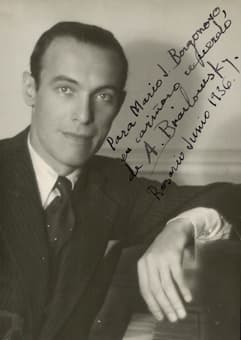
Alexander Brailowsky, 1936
Since we have already featured Vladimir Horowitz and Sviatoslav Richter in previous blogs, let’s get started with one of my favorite Chopin interpreters, Alexander Brailowsky (1896-1976).
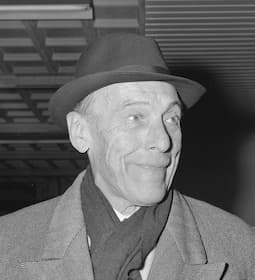
Alexander Brailowsky, 1965
A leading concert pianist between the two World Wars, Brailowsky was born in Kiev—then part of the Russian Empire—and he initially studied piano with his father. At the age of 8 he began his studies with Vladimir Puchalsky, a pupil of Theodor Leschetizky, and he entered the Kiev Conservatory at the age of 18. Brailowsky was famous for programing all 160+ piano pieces by Frédéric Chopin in complete cycles. He actually used Chopin’s own piano for part of his recitals, and explained that the technique used to play Chopin’s music should be “fluent, fluid, delicate, airy, and capable of great variety of color.”
Brailowsky Plays Chopin’s Valse Brillante in A flat
David Oistrakh
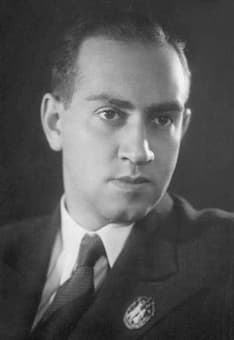
David Oistrakh
The first superstar violinist that I was able to hear perform live on stage was no other than David Oistrakh (1908-1974). Granted, I was very young, but it was an eye-opening experience for me; I had no idea that a small instrument could produce such a universe of shimmering sounds. A good many critics consider Oistrakh as one of the preeminent violinists of the 20th century, and he was born in the city of Odessa, Ukraine—then part of the Russian Empire. Born into a Jewish family, David began his violin lessons at the age of five as a student of Pyotr Stolyarsky, whose other students included Nathan Milstein, Boris Goldstein and Elizaveta Gilels. Oistrakh remembered, “From the very beginning Stolyarsky instilled in us the need for perseverance and showed us how to enjoy the pleasures of the creative side of music. Oistrakh performed his debut concert at the age of six, attended the Odessa Conservatory, and established a phenomenal career thereafter. For a good many critics, Oistrakh was “the ideal violinist, combining fingers of steel with a heart of gold.” Listening and watching Oistrakh perform, I was struck by how effortlessly his playing unfolded; it all looked so easy. This sense of technical ease also informed his interpretive style, as “he left audiences with the most profound impression, rather than the emotional resonance of individual moments.”
David Oistrakh Plays Beethoven’s Violin Concert in D major, Op. 61
Emil Gilels
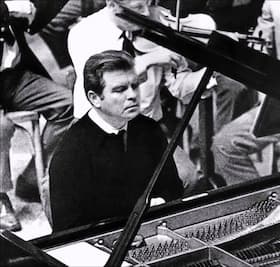
Emil Gilels
David Oistrakh was born in Odessa, Ukraine, and so was Emil Gilels (1916-1985). Born on 19 October, Gilels did not come from a musical family. His father worked as a clerk in a sugar refinery and his mother was a housewife. Although the family grew up in a modest flat in the poor area of Odessa, they did own a piano. It has been reported that from the age of two “young Emil attentively tried its keys and listened to the resulting sounds.” As such, it was decided that Emil should study with Yakov Tkach, a well-respected pedagogue in Odessa.
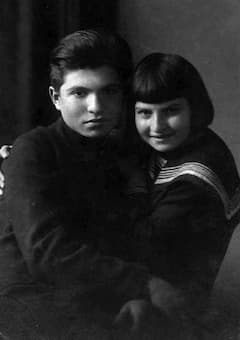
Emil Gilels
By all accounts, Emil’s pianistic development was unbelievably quick. “His hands did not need to be positioned as they seemed to move naturally around the keyboard, and his extraordinary ear and memory helped him to quickly and easily assimilate all the necessary musical rudiments and grammar.” Tkach commented, “Milya Gilels possesses the abilities of one who is born solely for the purpose of becoming a pianist…” Emil gave his first public concert at the age of 12, and in the same year was accepted to the Odessa Conservatory into the class of Bertha Reingbald. Although he would later study in the class of Heinrich Neuhaus at the Moscow Conservatory, he “regarded Reingbald as his true teacher, mentor and lifelong friend.” Gilels is “universally admired for his superb technical control and burnished tone, and the interpretation of the central German-Austrian classics formed the core of his extensive repertoire.
Gilels Plays Brahms’ Piano Concerto No. 2, Op. 83
Mela Tenenbaum
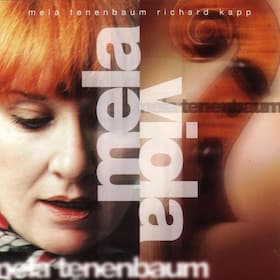
Mela Tenenbaum
For a glimpse at the turbulent history of the Ukrainian region, we just need to read a brief excerpt from violinist Mela Tenenbaum’s biography. “I was born in a small town called Chernovtsy,” she writes. “It belongs to the Ukraine now, but earlier in the century it was part of Romania. In another time, as Czernowitz, it belonged to Poland and later to the Austro-Hungarian Empire. So it had a very special culture. Most of the people in this town could speak three languages and were highly educated. Aside from that, Chernovtsy was one of those Jewish towns that had its own Jewish professor, Jewish shoemaker, Jewish doctor, and even Jewish alcoholic. So I was raised in this very special environment.” Tenenbaum went on to study music at the Kyiv Conservatory, and performed with the Kyiv Chamber Orchestra and the Kyiv Philharmonic from 1979. A number of Ukrainian and Russian composers wrote works especially for her, among them Dmitri Klebanov. Tenenbaum and her family left Kiev “because the Chernobyl disaster completely turned our lives upside down. My children became sick… people felt hopeless.” After transiting through Vienna and Italy, Mela and her family arrived in New York and settled in Brooklyn. Language and cultural barriers made life difficult, “but I never stopped practicing…” Eventually, Tenenbaum became the concertmaster of the chamber orchestra Philharmonia Virtuosi, one of the finest chamber orchestras in New York, founded and conducted by Richard Kapp.
Pietro Antonio Locatelli: L’arte del violino: Violin Concerto in D Minor, Op. 3, No. 1 (Mela Tenenbaum, violin; Philharmonia Virtuosi; Richard Kapp, cond.)
Shura Cherkassky
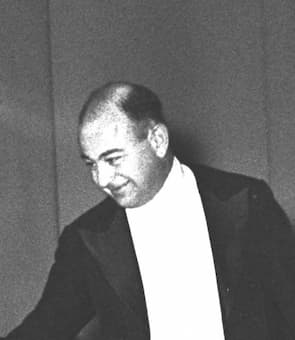
Shura Cherkassky
To my mind, Shura Cherkassky (1911-1995) was a dazzling virtuoso and an even bigger eccentric. He never played pieces the same way twice, and he “could be an erratic performer… But listeners attended his recitals with the expectation that he would offer them something unusual, and he remained faithful to that expectation.” As Cherkassky famously said, “I do everything by intuition. I even live by intuition. For some people it works well, and for some people it would be a disaster. I can’t really recommend what I do for others, because everyone has a different nature. And that goes for playing the piano.”
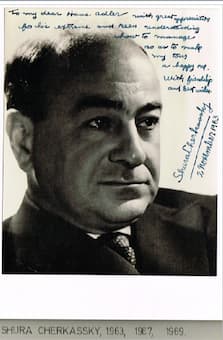
Shura Cherkassky, 1963
Did I mention that Cherkassky was born in Odessa on 7 Oct. 1911, and that he received his first piano lessons from his mother? He certainly was a musical prodigy, and it was reported that he composed a five-act opera at the age of 8. He is also supposed to have conducted an orchestra in Odessa when he was 9, and already was playing piano recitals around town. He left for New York at the age of 11, and when his hopes of studying with Sergei Rachmaninoff were dashed, he continued his piano studies at the Curtis Institute under Josef Hofmann. Cherkassky was a towering figure and a critic wrote, “He has complete mastery of the piano, which he handles as though he were putting the instrument through its paces. He has a beautiful tone and commands every shade of color, every variety of touch and texture.”
Shura Cherkassky Recital 1995
Nathan Milstein
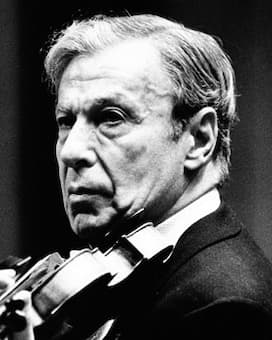
Nathan Milstein
The Ukrainian city of Odessa is the third most populous city in the country, and a major seaport and transport hub located on the northwestern shore of the Black Sea. A multiethnic cultural center, Odessa has been the birthplace of countless brilliant individuals across the arts and sciences. We have already met David Oistrakh, Emil Gilels and Shura Cherkassky, all born in Odessa. Let’s now add Nathan Milstein (1904-1992), one of the finest violinists of the 20th century, to that list. The fourth of seven children, Milstein grew up in a middle-class Jewish family with no distinctive musical background. To keep him out of mischief, his parents decided to let him study the violin after hearing a concert by Jascha Heifetz.
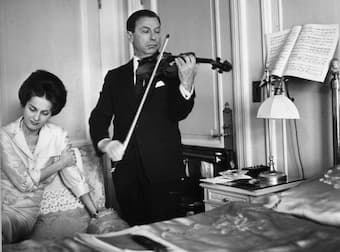 Like David Oistrakh, he initially studied with Pyotr Stolyarsky before becoming a student of Leopold Auer at the St Petersburg Conservatory at the age of 11. Milstein writes, “Every little boy who had the dream of playing better than the other boy wanted to go to Auer. He was a very gifted man and a good teacher. I used to go to the Conservatory twice a week for classes. I played every lesson with forty or fifty people sitting and listening.” Milstein performed a number of concerts in and around Odessa at the time of the 1917 Russian Revolution, and he toured with Vladimir Horowitz in 1921. Eventually, Milstein, like so many others before and after him, left the Soviet Union and settled in New York. His playing was “celebrated for his technical ease, aristocratic poise, mellifluous bowing and tonal perfection.”
Like David Oistrakh, he initially studied with Pyotr Stolyarsky before becoming a student of Leopold Auer at the St Petersburg Conservatory at the age of 11. Milstein writes, “Every little boy who had the dream of playing better than the other boy wanted to go to Auer. He was a very gifted man and a good teacher. I used to go to the Conservatory twice a week for classes. I played every lesson with forty or fifty people sitting and listening.” Milstein performed a number of concerts in and around Odessa at the time of the 1917 Russian Revolution, and he toured with Vladimir Horowitz in 1921. Eventually, Milstein, like so many others before and after him, left the Soviet Union and settled in New York. His playing was “celebrated for his technical ease, aristocratic poise, mellifluous bowing and tonal perfection.”
Nathan Milstein Plays Bach’s Chaconne BWV 1004
Rosina Lhévinne
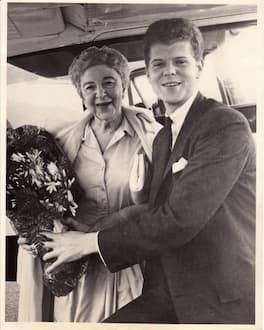
Rosina Lhévinne and Van Cliburn
The famed pianist and pedagogue Rosina Lhévinne (1880-1976) was born in Kyiv, Ukraine, then a part of the Russian Empire. She was a virtuoso performer but delayed a solo career until age 76, twelve years after the death of her husband, pianist Josef Lhévinne. Born Rosina Bessie, she was the younger of two daughters of a Dutch diamond merchant. The family moved to Moscow, and she began her piano studies at the age of six, and was accepted into the Moscow Conservatory at the age of nine. Initially, she studied with Remesov and later with Vasily Safanov.
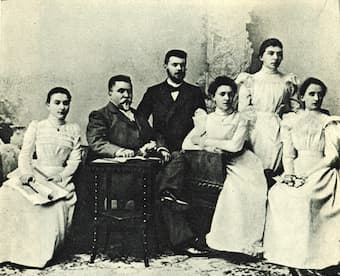
Vasily Safanov and students, Rosina Lhévinne on the left
Classmates with Rachmaninoff and Scriabin, Rosina met the highly talented student Josef Lhévinne. At the age of 15, she made her public debut playing Chopin’s Piano Concerto No. 1, and in 1898, she graduated from the Moscow Conservatory with a gold medal—the youngest woman ever to receive the school’s highest honor. “She and Josef Lhévinne were married a week after her graduation.” She gave up her ambitions to be a solo performer to avoid clashing with her husband’s career, and like so many before them, they emigrated to the United States after World War I and the Russian Revolution. Both joined the faculty of The Juilliard School, and she taught some of the most famous musicians of the 20th century, including Van Cliburn, John Browning, Mischa Dichter, Adele Marcus, Ralph Votapek, Martin Canin, David Bar-Ilan, James Levine, and Arthur Gold.
Rosina Lhévinne Plays Dvořák’s Piano Quintet in A Major
Mischa Elman
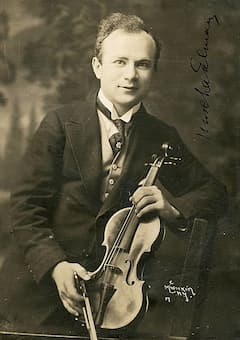
Mischa Elman
Famed for his passionate style, beautiful tone, and impeccable artistry and musicality, Mischa Elman (1891-1967) was born in the small town of Talnoye under the Kiev Governorate of Ukraine, then the Russian Empire. His father was a Jewish folk musician who also played the violin. Mischa displayed extraordinary musical ability at an early age, and after a period of hesitation, his father took him to Odessa. Initially he studied with Fidelmann and Brodsky, and when Leopold Auer heard him play in 1902, he immediately accepted him in his class at the St Petersburg Conservatory.
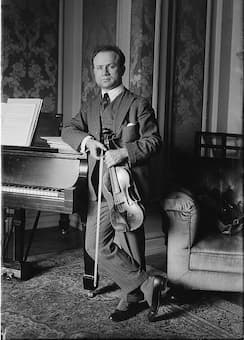
Mischa Elman, 1916
A funny anecdote relates that Auer arranged for Elman to play with the famous Colonne Orchestra. Édouard Colonne was known for hating child prodigies, and when young Mischa was waiting to go on the platform did he first realize that he had engaged a child. “He was furious, and flatly refused to continue with the programme.” In the end, Elman had to play with piano accompaniment while conductor and orchestra sat listening. Elman later reports, “after he had heard me play, though, he came over to me and said: The best apology I can make for what I said is to ask you to do me the honor of playing with the Orchestre Colonne in Paris.” Elman made his U.S. debut in 1908, and he was “hailed as one of the greatest virtuosos of the time, with a critic raving about his “mastery of utilizing the bow to create a wide range of colors.” In 1923 Elman became a naturalized American citizen.
Gabriel Fauré: Berceuse, Op. 16 (Mischa Elman, violin; Joseph Seiger, piano)
Anna Fedorova
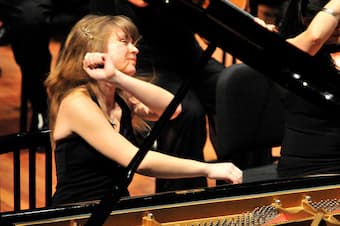
Anna Fedorova, 2008
New generations of highly talented Ukrainian performers are making their mark on the concert stage, including Anna Fedorova (b-1990). Born in Kiev, in the Ukrainian SSR both her parents were concert musicians, scholars and teachers. Already at the age of 2, she “knew that she wanted to become a pianist.” As she explains, “with both parents being professional pianists, there was always the sound of the piano in the house… My parents gave me lessons and were decisive for my musical development.” She started her studies at the age of five and gave her first public recital at the age of 6. Her national debut took place at the age of seven with the National Philharmonic Society of Ukraine. Her international concert career took off while she was still a child, and critics have praised her “sweet modesty and wild expression, which renders listeners completely taken by surprise, compelled and astonished. Fedorova describes her playing, “You can really paint with music. You see the colorful, inspiring scenes,” and her live recording of the 2nd Rachmaninoff Piano Concerto in the Royal Concertgebouw has become, with over 33 million views, the most watched classical concerto on Youtube.
Anna Fedorova Plays Rachmaninoff’s Piano Concerto No. 2, Op. 18
Anastasia Chebotareva
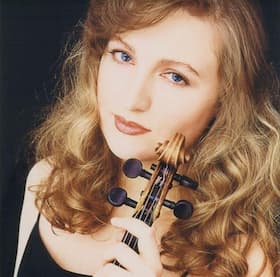
Anastasia Chebotareva
Let me conclude this blog with another native of Odessa, the fabulous violinist Anastasia Chebotareva (b-1972). She started taking violin lessons at the of five, and three years later her exceptional talent was discovered by the famous professor Irina Bochkova, student of the legendary Yuri Yankelevich. Trained at the Moscow Central Music School and Moscow Conservatory, Chebotareva “is one of the violinists of the lineage of Leonid Kogan, Viktor Tretyakov and Viktoria Mullova.” As a young musician, she was greatly influenced by meeting and playing for Yehudi Menuhin, Isaac Stern, and receiving lessons from Mstislav Rostropovich. She made her international debut at the age of 16 on tours to Italy, UK, France, and Germany. She won the Paganini International Violin Competition in 1989, and the Rodolfo Lipitzer International Competition in 1992. In 1994, in the violin section of the 10th Tchaikovsky International Competition, she shared the highest prize with Jennifer Koe of the United States.
This blog featuring exception artistic talent from the Ukrainian Lands could go on and on, and probably should also feature Oleg Maisenberg, Benno Moiseiwitsch and President Putin’s favorite love child Valentina Lisitsa, among countless others. Personal political affiliations none withstanding, the Ukrainian Lands have, and will continue to produce some of the most creative and artistically gifted performers in the world. Sadly, foreign powers are once again doing their absolute best to chase the brightest and most creative and talented minds and talents into Exile.
For more of the best in classical music, sign up to our E-Newsletter
Anastasia Chebotareva Plays Prokofiev’s Concerto No. 1

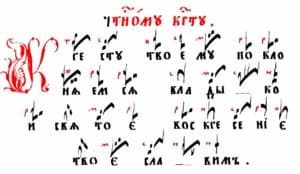
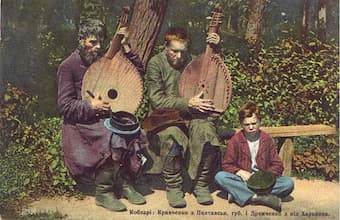
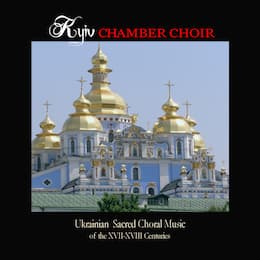
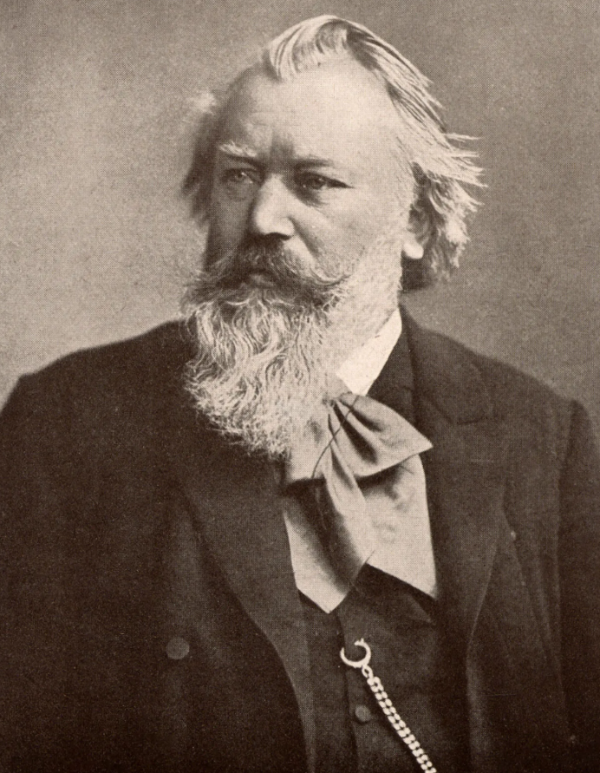
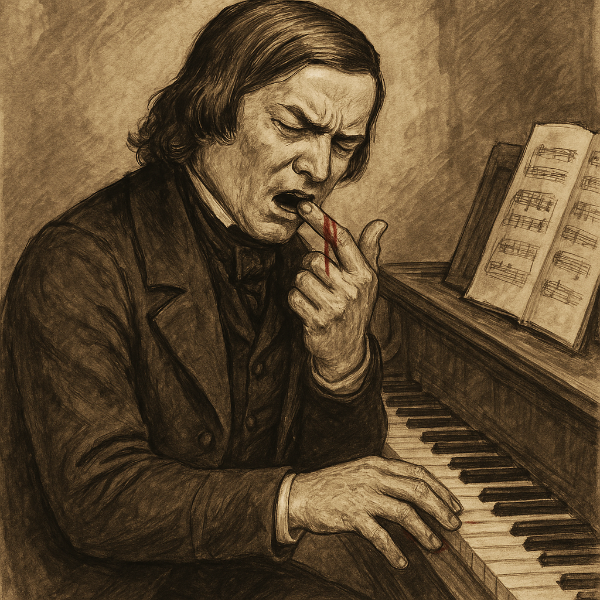
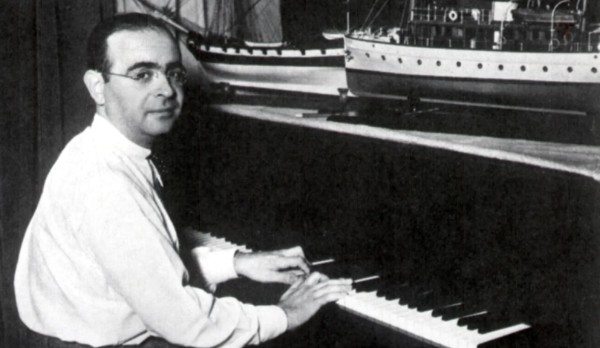
The city of Odessa was the cradle to great performers.
What happen to Horowitz? He was from Ukraine!
Vladimir Horowitz
Tout le monde sait que Vladmir Horowitz (1903-1989) est considéré comme l’un des plus grands pianistes de tous les temps. Capable de produire une gamme exceptionnellement large de tons, son style impliquait fréquemment de vastes contrastes dynamiques, “avec des doubles fortissimos écrasants suivis de pianissimos soudains et délicats”. De plus, il dégageait une sorte de charisme à haute tension qui, à son époque, ne pouvait être égalé que par Toscanini, Callas et Pavarotti. Ce qui est généralement moins connu, c’est le fait qu’Horowitz est né à Kyiv, alors occupée par l’Empire russe. Son oncle Alexander était un étudiant et un ami proche d’Alexandre Scriabine, et quand Horowitz avait 10 ans, il a joué pour Scriabine, “qui a dit à ses parents qu’il était extrêmement talentueux”. Horowitz a reçu sa première instruction de piano de sa mère et, lorsqu’il est entré au Conservatoire de Kyiv, Vladimir Puchalsky, Sergei Tarnowsky et Felix Blumenfeld lui ont enseigné. Il a joué son premier récital solo à Kharikiv en 1920, et peu de temps après, il a fait une tournée en Russie, étant payé en pain, beurre et chocolat plutôt qu’en argent, en raison des difficultés économiques causées par la guerre civile. Au cours de la saison 1922–23, il donna 23 concerts de onze programmes différents dans une seule ville, s’imposer comme l’un des premiers pianistes de cette époque. Pourtant, malgré ses premiers succès en tant que pianiste, Horowitz a affirmé qu ‘«il voulait être compositeur et n’a entrepris une carrière de pianiste que pour aider sa famille, qui avait perdu ses biens pendant la révolution russe». Sous prétexte de vouloir étudier avecArtur Schnabel à Berlin, Horowitz est parti pour l’Ouest sans jamais avoir l’intention de revenir. Après une absence de 61 ans, et s’étant juré de ne jamais revenir, le pianiste mythique revient sur sa terre natale pour une tournée de deux concerts. Cependant, il ne l’a fait que parce que l’URSS monolithe avait finalement lamentablement échoué. Le monde avait évolué – du moins la grande majorité l’a fait – et tout rêve renouvelé d’un empire russe aujourd’hui n’est rien de plus qu’une bulle de savon. Les artistes et musiciens ukrainiens, comme nous l’avons vu, ont depuis longtemps compris ce fait particulier.
How about Victoria Mushkatkol?
Vladimir Horowitz (mentioned elsewhere), Vladimir de Pachmann, Sviatoslav Richter, Valentina Lisitsa, Sergei Bortkiewicz, Gregor Piatigorsky, maybe Sergei Prokofiev qualifies as Ukrainian…. You could fill an entire web page with the names of top caliber artists born in (today’s) Ukraine.
Somebody leave out Yehudi Menuhin?